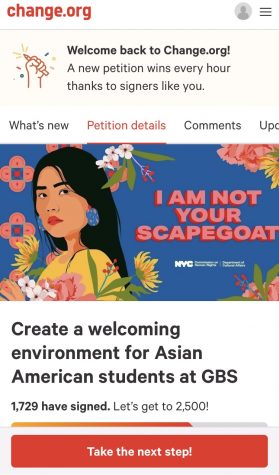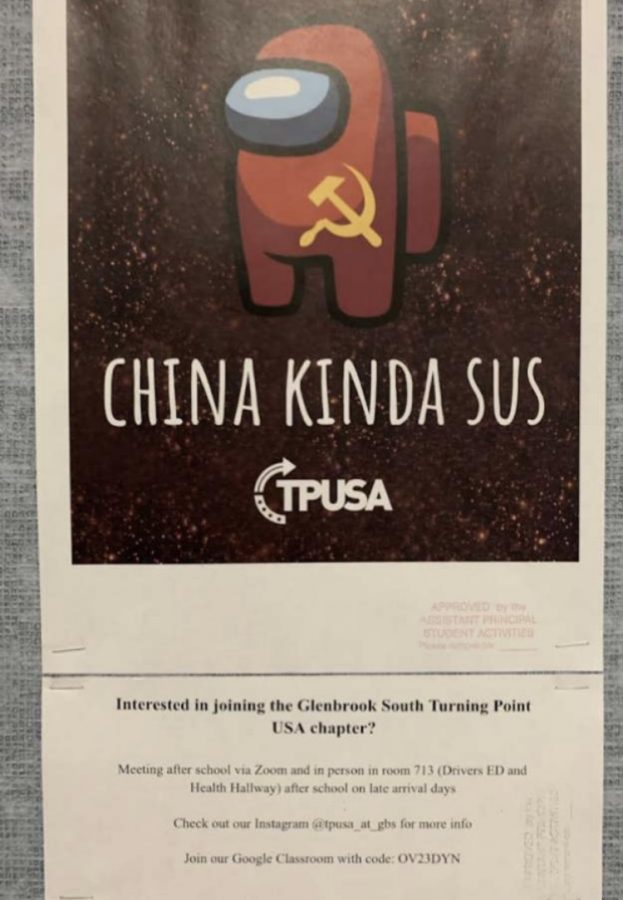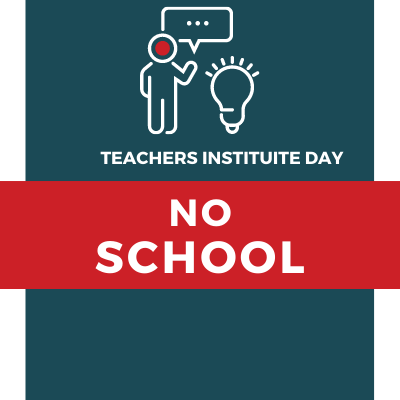GBS student community outraged for “racist” poster put on school walls
Based on the popular game “Among Us”, the poster above shows a red imposter character with a China symbol on it, with the words “China Kinda Sus”. This poster has been criticized as racist and insensitive by several GBS students.
Recently, the Turning Point USA club, a conservative political club at Glenbrook South High School (GBS), has been under fire for posting a controversial poster. Featuring a red “Among Us” character, the poster reads “China kinda Sus.” Below it, an advertisement for joining Turning Point USA (TPUSA) is shown. The poster was put up on the walls of GBS in mid-April and has sparked an ongoing discussion about what is acceptable student expression versus casual racism and what actions schools should take in situations like this.
In response to the backlash against their poster, the GBS TPUSA Instagram account posted a statement saying “recently, the Liberals have gotten offended with us for putting up Turning Point USA posters around South … While the school approved the posters, they have now been taken down from outrage from the Liberal mob … Saying that ‘China is suspicious’ is not racist! Currently a genocide of Uyghurs is taking place in China. The left is calling us racist for supporting suspicions about China! Our club is prepared to take all action to ensure this poster, and all of our other TPUSA posters will remain in the GBS hallways.”
GBS has a handbook with rules and regulations for acceptable conduct among students. One of those rules allows for a right to express opinions peacefully. Another part of the GBS handbook allows for students to put up posters on the walls in the hallways, provided that they get a stamp of approval from the assistant principal of student activities, which the poster had. The Turning Point USA followed these rules, so why is there outrage among students in the community?
It all stems from what message the poster conveyed and what was left of the poster. The word “sus,” popularized by the game “Among Us,” is Gen Z slang meaning “suspect or suspicious, having the sense of questionable or shady” according to Dictionary.com. Couple that with what’s not on the poster, any mention of Uyghur Muslims, genocide, or government policies, and it’s easy to see how one can interpret the poster as a racist advertisement against China as a whole, rather than a PSA about legitimate concerns about the Chinese government’s actions. The Uyghur Muslim genocide is an ongoing abuse of their human rights that does need more widespread attention; however, it raises questions about the initial motives of TPUSA’s poster as their labeling of China as suspicious had no context on the poster itself. In this situation, it seems as though TPUSA labeled China as a whole “sus,” which by itself would be an insult to the culture and homeland of many Asian American students in the community.
Along with criticism leveled against the TPUSA club, there have been complaints against the school. Questions have been raised about how the poster was approved in the first place, and the lack of an early public response from the school has been criticized as well.
Students in the GBS Asian American and Pacific Islanders (AAPI) community have not let this sit quietly. There has recently been a movement forming calling for greater accountability within the school. At the front of it is student Sydney Kim, who started a petition which she started to get greater accountability from the GBS school administration. I had a chance to talk with her about her future plans with the petition, which I have signed.
Her initial response to the poster was: “I didn’t think that something with so much hatred and negativity would ever be found in GBS hallways. I asked the person that showed me if they were serious and even went as far as to ask if it was photoshopped. She showed me the stamp of approval from the school on the poster, and that just made me really upset.”

Her frustration was not an isolated feeling; multiple GBS students have been posting and spreading the word that more needs to happen in the community. Currently, the petition is at 1742 signatures at the time of the writing of this article.
In response to TPUSA’s social media post, Kim said that“regardless of the intent behind the message, TPUSA should have, at the very least, phrased the words on the poster differently. A lot of the students at school felt targeted, hurt and disgusted after seeing the said poster. During a time when Asian American hate crimes have reached a near-crisis level, this poster is even more insensitive and not welcome in a school environment that is supposed to be inclusive. Cases like Hazelwood vs. Kuhlmeier proved that the First Amendment doesn’t apply in public high schools when words can have detrimental effects, and this is certainly the case. There is no place for hatred and/or thoughtlessness in GBS’s environment. Arguing that the CCP is ‘sus’ goes against GBS’s policy of keeping politics outside of school affairs as well.”
The case Kim mentioned, Hazelwood vs. Kuhlmeier, was a 1998 Supreme Court Case that changed how schools and the First Amendment interact. Students in a journalism class had written a piece about divorce that their principal had censored before it was released. The case made its way up the court system before the Supreme Court ruled in a 5-3 decision that, because the paper was sponsored by the school, the school had a “legitimate interest in preventing the publication of articles that it deemed inappropriate” according to federal court records held by the National Archives. The case does share many similarities to the GBS poster situation, especially considering the TPUSA is a club that was technically sponsored by the official GBS administration. At the time this article was written, TPUSA was disbanded due to the fact that they had no official adult sponsor, which was against school policy.
In her final statement, Kim stated: “we’ve received no changes and only vague promises after weeks. We still need an apology from the administration, because as I’ve said before, even if they didn’t mean to cause such damage, people were offended and school policy was violated. You can’t hit someone with your car and then say something like ‘oh, I didn’t mean to hit you!’ The damage is still done at the end of the day, and it’s still your responsibility. We also need education for all students about 1. the effect of anti-AAPI sentiment [and] 2. freedom of speech and press in schools. Clearly, several misunderstandings could have been prevented had students been educated about said topics. Lastly, we need an official policy set in place from the Glenbrook community to ensure this doesn’t happen again.”
As Kim stated, this situation is still unfolding. No matter what happens, however, there is a lesson that can be learned from this situation. In a year of pain, suffering, and struggle for the minority communities in this country, there are many who are still experiencing the hurt that comes from the racial injustices that led to so many hate crimes and deaths. Whether it’s the murder of George Floyd by Derek Chauvin or the ongoing AAPI hate crimes in multiple states, many of these incidents remind minorities of the times they’ve experienced hateful discrimination in their own lives. It’s not such a difficult thing to do to just be sensitive and considerate, especially for our peers in our community—especially considering that we don’t know what they’ve experienced or what they’re going through. In the end, it all boils down to this: the kind of community you live in is the community you help create, and by incorporating basic respect into our actions and words, we can build our ideal community together.
For those interested in signing the petition, the link is accessible at http://chng.it/vdN58dXGGb
Your donation will support the student journalists of Neuqua Valley High School. Your contribution will allow us to print our next newspaper edition as well as help us purchase equipment and cover our annual website hosting costs.







